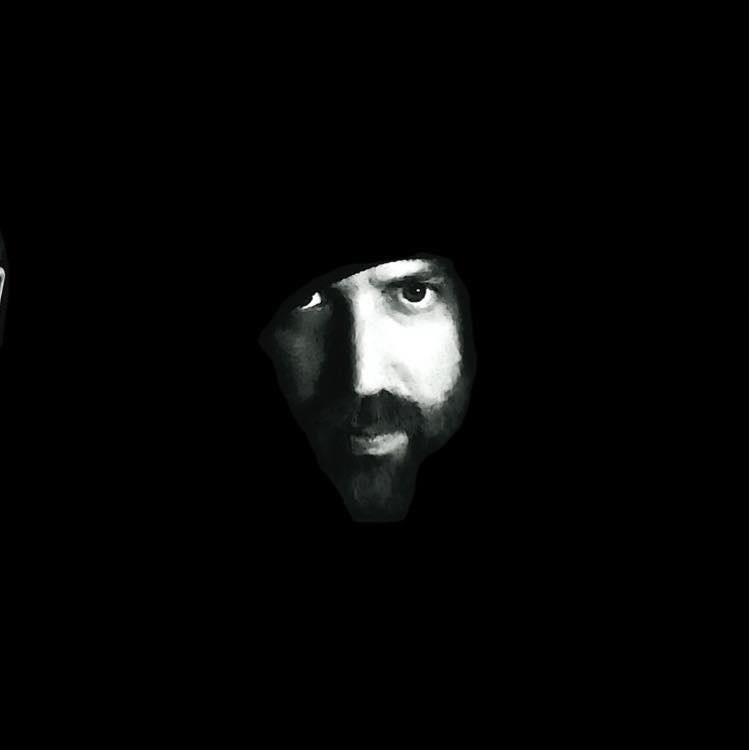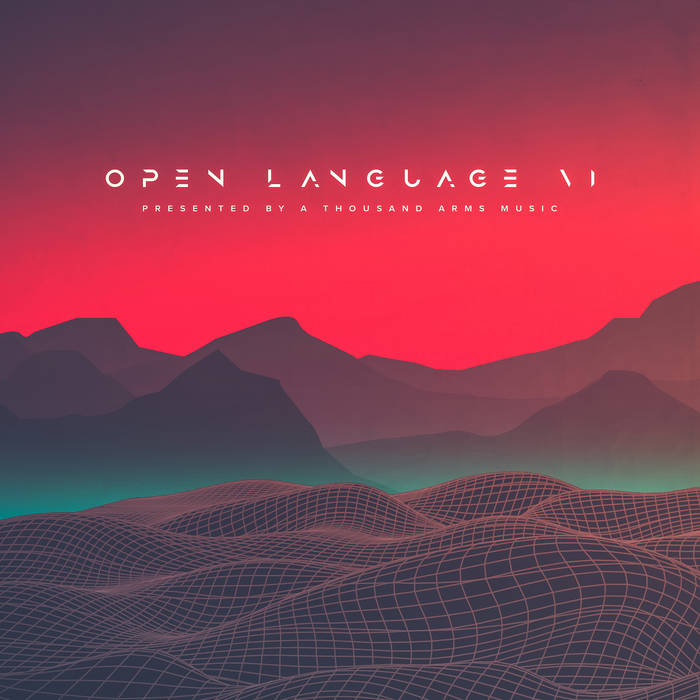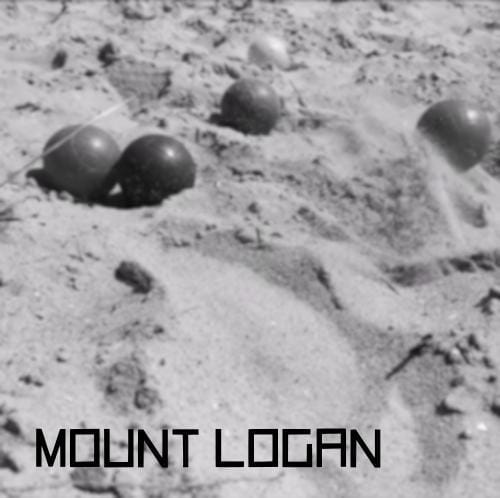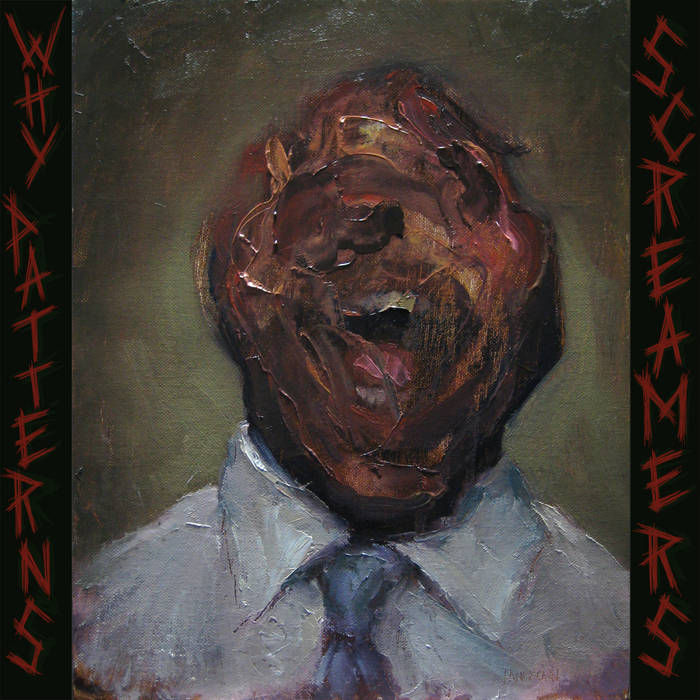Interviewing people can sometimes be a hard job, when the person interviewed is not as responsive as you would have wished for. Junius’ mastermind Joseph E. Martinez is the complete opposite!
Joseph comes from a family full of musicians and one of his family members was the first international Latin rock star! So his path seems to have been pre-destined for him – and when his band Junius got going in 2003 it seemed like a rocket ready for liftoff for its music was intellectual and different, new and fresh, intelligent and emotional. Nowadays these records are still relevant although, alas, it has gotten a little quiet around the band. But then! Last year two of their records (including their masterpiece The Martyrdom of a Catastrophist were re-released on vinyl by Pelagic Records. And now they announced a show later this year and have a new (live) guitarist with Eoghan McCarthy! Hopefully the rocket will now get ready and go through where it should go – through the roof! Joseph was one of the easiest interview partners I ever had and gave great, lengthy answers:
Joseph, first of all – thank you for even considering doing this. This interview will be the next one in our ongoing series of lengthy interviews with musicians that we do not talk about enough.
Thanks for reaching out!
Your Instagram shows some photos of pedal boards, so would you describe yourself as a tech-nerd?
Yeah I think so. I can get pretty obsessed about my pedal board and new technology. I’ll rebuild my board 12 times before settling on something and then I ultimately end up just going back to my old setup I’ve had for 15+ years. It’s a fun process either way.
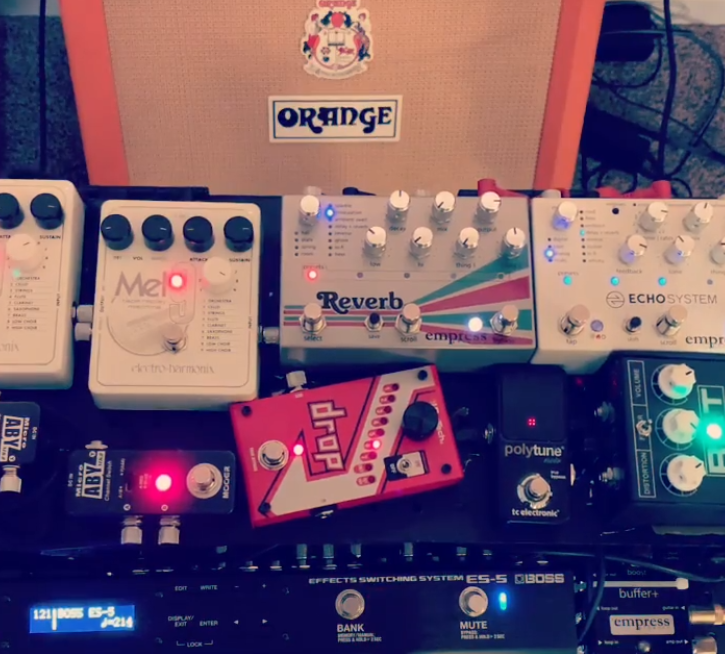
You have been mixing and mastering some other bands as well, if my research is correct. Which bands have you been “producing” and how did that come about?
I haven’t really produced anyone yet. I have mixed and mastered a couple things. My cousin’s band Liferaft was one project and I’ve done a Junius song mixing wise. I’m probably forgetting something but not too much though, just trying it out for fun.
If you could be involved in the production of the next record by a band of your choice – which one would you like to be involved in? Why?
I wouldn’t want to mix or master these guys since they’re albums sound perfect already and I would just fuck it up, but I would love to be in the room with Anthony Gonzalez (M83) and Ken Andrews (FAiLURE) while they record their next albums. Just sitting in, not participating, just taking notes.
You scored a movie called Abrase (see below) - can you tell our readers a bit about the movie and about your approach to scoring it?
That was a short film by our friend Toshadeva Palani. He filmed our videos for “Betray the Grave” and “A Mass for Metaphysicians” and he asked if I wanted to score his short film. it was a more abstract piece about a relationship. I wrote something for the last scene and then stripped it down for the rest of the film. Slowly building up to the final moment. It was a fun experience, very beautifully shot too.
Is that something that you would like to pursue?
Yes absolutely, but it is a hard business to get into. I feel like I would have to write, film and produce a movie just so I can score it.
Now, how did your interest in writing your own songs start? What was the first kind of music (or genre) that was “written” by you? Were there any particular initial influences?
I fell in love with the band Failure and ended up obsessing over them and that was around the same time I started playing guitar. Hum was right after that. Then Deftones, “Be Quiet And Drive” came out, and that was a big game changer for me. Radiohead, My Bloody Valentine and Bedhead were all big influences and motivators in wanting to write my own music. I think I learned a couple of Nirvana songs first before I started writing my own music and then I bought a 4-track and that was it. I kind of skipped over the whole cover band thing.
I know that you love the band Failure. Which of their records is your favorite and why?
Fantastic Planet. It is what started me down this path to Junius. I listened to that every night for at least a year straight, and maybe every other night for years after that.
Was Hum also an influence on you?
Haha. Yes, Absolutely. Downward Is Heavenward is the album that shaped a lot of my guitar playing ideas. I heard “Stars” on the radio, like everyone else, but You’d Prefer an Astronaut didn’t pull me in the same way Downward… did.
Now coming to talk about your uncle, Trini Lopez. He died recently and you wrote some very emotional lines about him on the web. As it’s documented what an interesting person and an interesting biography he had – what inspired you most about him?
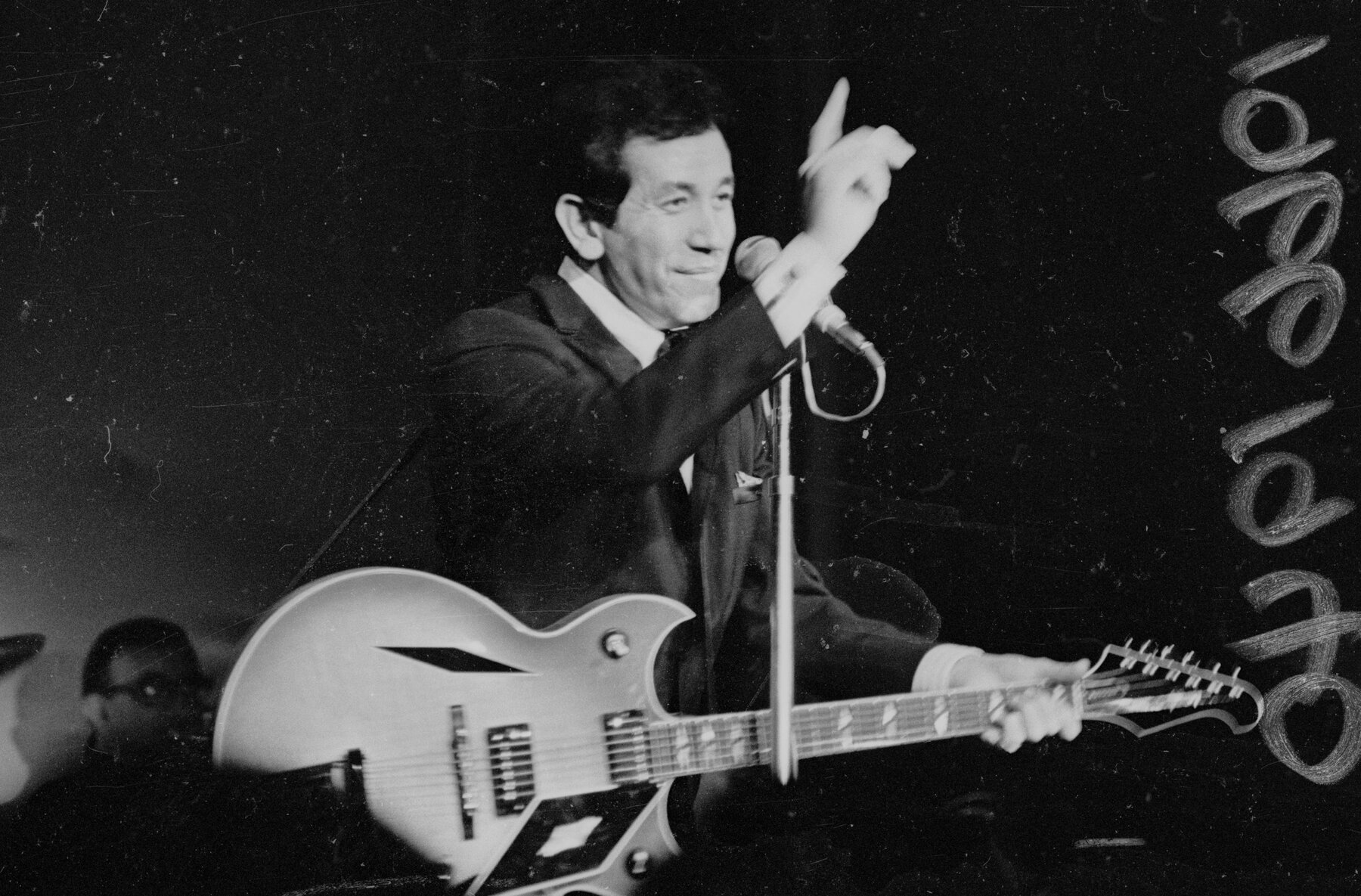
Growing up I never knew how big he was, I knew he had gold records and was in a movie, but when you’re a kid it doesn’t really compute. Once I got to my teenage years and started paying attention to all the stories he told or was told about him, it started to sink in. He’s my great uncle so his sister is my grandmother, but she would always say that his talent is in all of us kids (nephews and nieces). It probably sunk into our subconscious, since most of my 10 cousins ended up becoming artists. I guess the inspiration was more that I knew I could do music because I was told it was inside of me already. I don’t believe that is true now, but it shows what encouragement and positivity can do for a child.
Would you agree that he is one of the most important members of the Hispanic community as he was one of the first major stars with roots in Mexico?
Yes. He was my family, so it is a bit strange, but he was the first international latin rock star.
When you were young – did you believe his “stories” about Elvis, the Beatles or Sinatra?
Absolutely. One thing about my uncle was that he was honest to a fault. He didn’t sugar coat anything. His stories are pretty incredible. The Elvis story is great and kind of sad. Elvis wanted to ride a roller coaster with Trini’s brother, my Uncle Jesse, because he reminded Elvis of his deceased twin brother. So they opened an amusement park after hours for them, so they could ride the rollercoaster together. Crazy stuff.
Here in Europe he is mostly known for “If I Had A Hammer” even though that wasn’t even written by him. Which other songs or records of his should be checked out?
Trini Lopez Live at PJ’s is pretty much the pinnacle to me. He has other great albums, but that’s the one that made him famous and it’s raw and live.
Now am I right in guessing that you are also closely related to Trini Martinez who was a musician as well?
Yeah, that is my uncle as well, but my mother’s brother. He was the drummer for the band Bedhead and his son Trini is the singer of Liferaft, whose album I mixed and mastered. Basically if your name is Trini, we are probably related.
Would you say that your family was less problematic when you chose your life-devotion as a musician than others or were there some struggles for you?
Yes, they were very supportive, music brought my family out of the barrio, so you can’t argue when your grandchild wants to hit the road and play music full time.
Before Junius there was Dedspace – why did you change to Junius for all I know is that the line-up was nearly completely the same?
The lineup was not quite the same. It was Dana, our then bass player Rob and me. A three piece. We were more of a space rock band. I wanted to add another guitar and fill out the sound and bring in a more “My Bloody Valentine-vibe”. That’s when Mike joined, and we just started jamming and shortly after that our bass player Rob left and then we had a bunch of fill in bass players. After that, we embrace our inner post-punker and we changed our name to Junius and released Forcing Out the Silence a year later I believe.
What is the current status of Junius? Did I see correctly that you were back inside a studio last year?
We are slowly writing, but we are currently focused on playing live shows again.
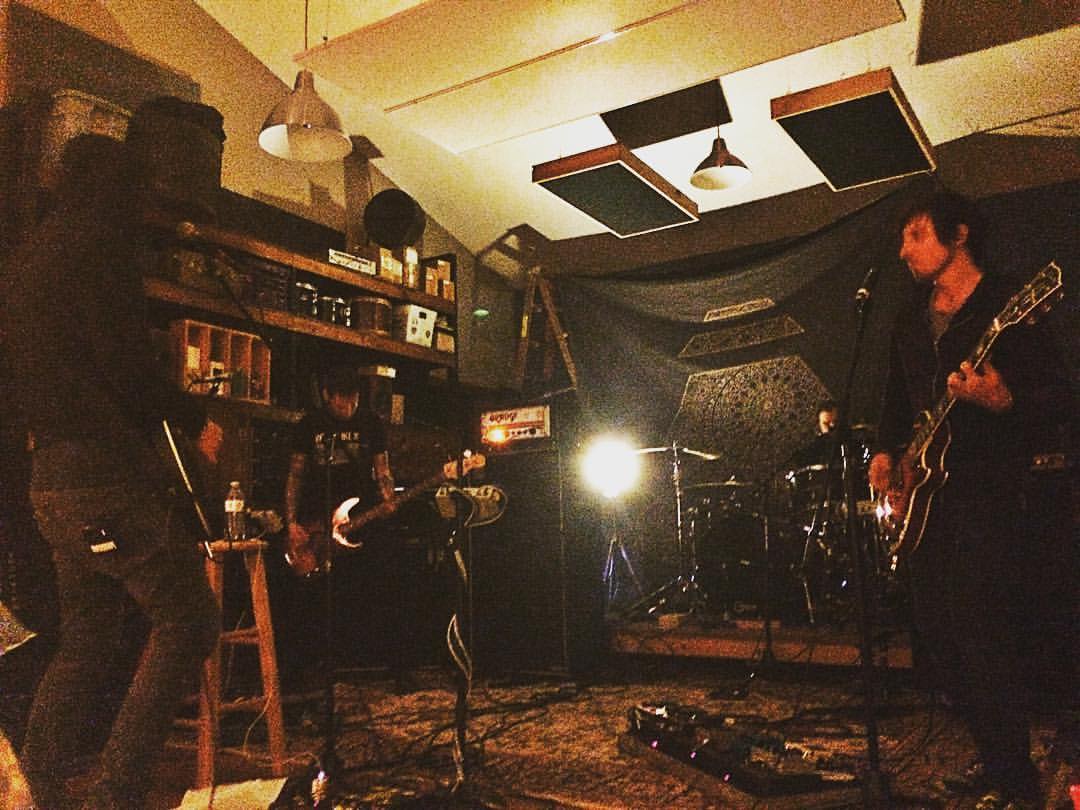
How important are devoted fans [like Marcel from Athens] for a band like Junius? And for you as a musician?
Marcel is great! Devoted fans are everything, they are the main reason why we want to play shows again. We are not a very social media present band and unfortunately that skill seems to really make or break bands nowadays. Luckily people still listen to our music regardless of our lack of activity. We are eternally grateful for that.
A few magazines labeled you as a “Goth-Rock” band – did that bother you? Are labels/genres something that bothers you?
They used to bother me, but now I don’t care as much. I’m down with Goth Rock, Post-Rock, Post-Metal, Post-Punk, whatever helps people find us is fine with me. I definitely would love to play with more diverse bands. We’ve had some really great shows playing with Goth Rock bands or straight metal bands or new wave bands. Junius does well with the darker genres.
I know that Junius has been an integral part of that whole Boston or Massachusetts scene (including bands like Caspian or Constants) – how close-knit is that scene nowadays?
Not as close as when we were all sharing a bus, but we are all older and have our own lives now. I still see most of the guys at least yearly. There isn’t a scene with us anymore in Boston. We don’t play here as much, but hopefully that is about to change and we can get back in the mix, but it’s really just Junius, InAeona and Caspian left in Boston from the old days.
Junius did quite a lot of splits – is there any band with which you would love to do a split record? if so – why?
[here their song from the split with Rosetta, on which Rosetta covers Soundgarden’s “4th of July”]
I am into the idea of doing a splits again, it’s been awhile that’s for sure. No one in particular comes to mind though.
You did a cover of ”Firehead” by Hum – which other band/artist would you like to cover?
A lot! I have always wanted to cover Nina Simone and Prince and the Smiths. A Smiths cover was in the works a long time ago, but covers kind of always take a backseat to original material. There was even a holiday song I messed around with… I actually keep a list of songs that I would love to do someday.
I think, there is a strong connection between Junius and Germany, right? A German label with Golden Antenna, a feature of yours on a Planks record etc. Do you like Germany?
I love Germany. I miss it. It felt like a second home to us for a long time. We’ve always felt very supported there. Our first overseas label was over there, Make My Day Records. They were great to us and we were able to start touring Europe with their help. We’ve made many life-long friends over there.

Now two of your records have been re-released by Pelagic Records – how did that come to fruition?
It happened when Lesser Glow released something on Pelagic and I looked at the roster and saw a bunch of bands we were friends with on there and so I emailed them. Robin got back to me immediately and said they would love to release them. That was it.
Now we come to the central topic of the interview – history. I know you are quite the history buff, when looking at your discography that becomes obvious. Who sparked that interest in history?
I don’t think it was one person, but just my love of reading everything I could. One book leads to another and another until you find stuff that interests you. I found I like esoteric subjects most, and that’s generally what I write about.
Do you think that the whole Boston-area (which is full of colonial history) also had something to do with your interest in history?
Absolutely. I love New England because of its history. I was born in Texas and spent my formative years there until I moved up to Boston when I was 14. My mind was pretty blown when your high school was older than the entire state of Texas. That’s one of the reasons why I love Europe so much too.
Nevertheless, quite often history or historical themes and events seem to be merely a background for something even more transcendent to you. Is that right?
For sure. History is definitely a backdrop. The human plight is pretty consistent throughout the ages, it’s the scenery that changes. That’s why I love and hate the idea of reincarnation. I love the fact that you could experience a new world every lifetime, but hate that you don’t remember it for the next one. Or at least I don’t remember my past lives.
Is history a kind of blueprint from which you draw conclusions on the human being and its evolution as a species or the singular human and its progression through life?
I think you can draw pretty solid conclusions on what our future holds based on our past, but I do believe that a singular human or a few humans can change the course of history for good or bad, but ultimately everything is just an eternally sprouting fractal and we’re just along for the ride.
So would you agree with the old Santayana quote “Those who cannot remember the past, are condemned to repeat it.”?
Of course. We’re living it right now, at least in the US. We’re ripe for the next totalitarian regime. End of times stuff for sure.
The backdrop of maybe your most famous record The Martyrdom of A Catastrophist is the life and theory of Immanuel Velikovsky. Can you tell our readers why he fascinates you so much that he became a link between two of your records?
He was a tragic figure. Brilliant but flawed. He was passionate about the history of human civilization, but ultimately missed the mark. His writing was beautiful and dramatic. He wasn’t just focused on one discipline, he knew a lot about a lot, but not enough to where he could see how close he was. Ultimately it was his personal life that I related to. You know, trying to go out and follow your passion and failing miserably. Ha.
Velikovsky is regarded as a pseudo-scientists by many because of his theory that planet Earth has often been quite catastrophically close to other planets like Venus and Mars – many historians believe this to be pure invention without any real scientific background. What do you think about his theory?
I believe the spirit of what he was saying was correct, but the mechanics are laughable. He let his imagination run away with him I think, which I can totally relate to. if you replaced the planets nearing the earth with the Taurid meteor stream or some cyclical comet event, then I think a lot of his other theories line up. His book Mankind in Amnesia predicates that the violence we show as a species lines up with someone who has experienced severe trauma in their past and for the human civilization it came from these meteors making an appearance every so often and just wiping civilizations off the planet. This created a kind of genetic trauma that gets passed down to the survivors of these collisions. So imagine, meteors seemingly hovering in the sky that look like stars coming to visit or God’s coming to visit it’s children and then after some time they get larger and larger until they come crashing down and raining a fiery hell upon Earth. if you were one of the few to survive, you would probably be pretty fucked up and the genetic trauma would get passed down for ages until it happened again. As our gods ascended, so began the violence of man. Obviously nothing is conclusive with any of this just yet, but it’s a fascinating theory nonetheless.
What do you think made him so popular outside the historical societies in your opinion?
Because he filled a gap that people deep down know needs to be filled. At the time no one wanted to believe that our universe was not divinely perfect, they called it Uniformitarianism. So with his flair for the dramatic, Velikovsky wrote this science fiction-esque book that has some bases in reality and people just ate it up. It connected with something primal, it definitely did with me.
You also chose the name of an 18th century writer who used Junius as a pseudonym and whose work became significant for the American Revolution as he informed the public about the English government’s rule over the colonies and its infringements upon the rights of the colonists as Englishmen. Do you see yourself also in a position to inform the people?
No, we just thought it was cool that this anonymous writer was able to create waves in the press and no one to this day knew his name. He used Junius, Lucius, Brutus and other names, but the anonymity part appealed to me for sure. I write about whatever I want though, everything is on the table.
When choosing a historical pseudonym for your band – did that also hint at you as the people behind the band not being that important? That the message is more important than the messenger?
Absolutely, (like I said before with the name), the anonymity appealed to me. I didn’t want the focus to be on anything but the music. In the early days we played in the dark with a blue light on the floor, and then we dressed in black and grew out our beards to hide even further. Eventually the lights got more elaborate, but the black clothes and beard will probably always stay. Hell, no one even knows my real name. Actually now that I think about it, I probably did too good of a job hiding. No one knows about my band still. Probably could have sold some more records if I turned the lights on sooner. I might have fucked up.
Your three full-lengths are a kind of trilogy (as obvious from the names already) showing the journey of the human from bodily apparition (Velikovsky) to the sole existence of the soul and its life after death within the realms of “the eternal”. Nevertheless, the question might be asked if history does not somehow prevent that transition as we are always bound by the footprint we left here on earth?
In The Martyrdom of a Catastrophist, we follow someone’s life and struggles until death, with Reports from the Threshold of Death we explore near death experiences and that journey. Then we ended with Eternal Rituals for the Accretion of Light and the idea of reincarnation with the intent of breaking the cycle through an ancient initiation process outlined in the book Initiation by Elizabeth Haich. I’d like to think that we all could break this cycle through an ancient ritual, but who knows. It’s a thought provoking idea though.
Now we come to a quick-fire round:
Red Sox or Bruins? Not a sports guy at all, but Fenway Park is pretty cool so Red Sox.
Favorite time period - 18th century or 20th century? Oh that’s hard. Probably the 18th century.
Summer or Winter? Winter.
Mountains or Seaside, for vacation, not for living? Seaside for both vacation and living.
The Ocean or Rosetta? I don’t think I’ve seen the Ocean live, and we released a split with Rosetta so I’m going with Rosetta.
Coffee or Tea? Tea.
Vinyl or streaming? Vinyl, but I use Spotify all the time even though they’re assholes.
Guitar or bass? Guitar.
Scoring a movie or producing a record (not for your own band)? Scoring a movie.
Reading or writing? Writing.
Final question: We like to keep a “chain” in this series and therefore our last question is always the same: Which musician or person in the music business should we interview next because, in your opinion, that person has a lot of interesting things to say?
Drew from Circle Takes the Square is one of the most intelligent and interesting people I’ve ever known.
Joseph, thank you so much for doing this!
Thank you!
Here is the short movie he scored:
Abrase | Short Film from Toshadeva Palani on Vimeo.

